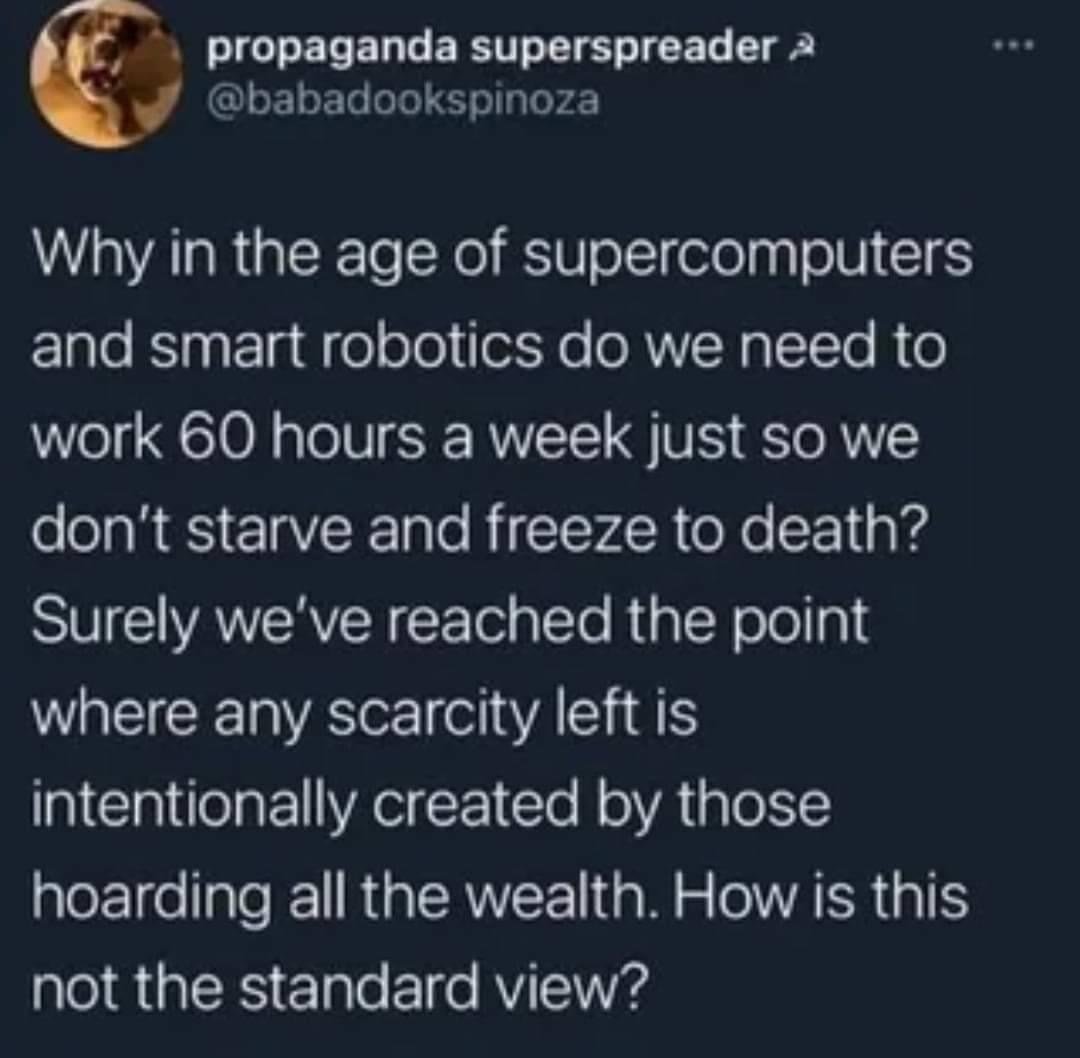this post was submitted on 24 Jul 2024
1395 points (97.8% liked)
US Authoritarianism
868 readers
222 users here now
Hello, I am researching American crimes against humanity. . This space so far has been most strongly for memes, and that's fine.
There's other groups and you are welcome to add to them. USAuthoritarianism Linktree
See Also, my website. USAuthoritarianism.com be advised at time of writing it is basically just a donate link
Cool People: [email protected]
founded 9 months ago
MODERATORS
you are viewing a single comment's thread
view the rest of the comments
view the rest of the comments

Nationalising industry is a very leftist and collectivist idea, the more democratic the state the more collectivist. Social democracy protects against socialist revolution by making concessions to socialists, therefore these concessions are necessarily leftist. The fact that fascists sometimes employ national industry or infrastructure is just a matter of the fact that it's more efficient, not out of leftist ideology. They know that in order to have a functioning society that brings profit to their capitalist owner friends, there need to be paved public roads and a functioning electric grid.
If the state is truly democratic and acts on behalf and in the interest of the workers, it can be better than direct control by workers. I don't want my hospital workers striking for higher wages than the rest of workers out of egoism, I want the public (and thus practically through the state) to have a say on that. My best bet would be some sort of dual-power structure in which the people in general (as represented by a democratic state, including things like local councils or other regional subdivisions of the state) need to reach agreements with representatives of the workers (possibly through unions).